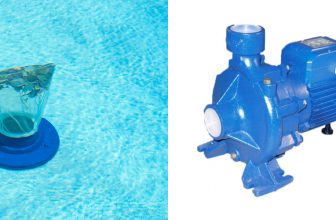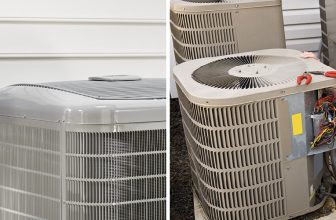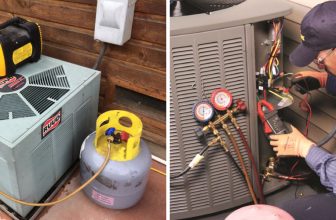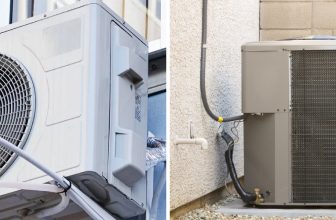How to Fix Heat Pump Freezing Up
Do you have a heat pump that stops working or starts to freeze up in cold weather? If so, then the last thing you want is for it to leave you out in the cold! Fortunately, there are steps you can take to diagnose and fix a frozen heat pump quickly and easily.

In this blog post, we’ll discuss how to fix heat pump freezing up and run through some basic maintenance tips as well as troubleshooting strategies that will get your system running optimally again. So keep reading if you want to learn more about solving your heat pump’s frozen problem!
Why does the Heat Pump Freeze?
Before we get into how to solve the problem, it’s important to understand why heat pumps freeze up in the first place. Generally speaking, most issues related to a frozen heat pump are caused by a lack of maintenance or inadequate insulation. Without proper upkeep and insulation, heat pumps can’t keep up with demand when temperatures drop, and they start to freeze up.
In addition, a lack of airflow is another common cause of freezing problems. When the air filter gets clogged, or the registers are blocked, it can restrict the amount of air that’s able to circulate which can lead to a frozen heat pump.
Needed Tools and Materials
Before you start troubleshooting your heat pump, it’s important to gather the tools and materials necessary for the job. This includes a vacuum cleaner, filter replacement parts (if needed), and a set of screwdrivers. Additionally, you’ll need some basic cleaning supplies, such as an all-purpose cleaner or disinfectant spray, to help keep your system clean and free of debris.
Also, if you’re going to be replacing parts or making other repairs, make sure you have the proper supplies for those tasks as well.
10 Tips on How to Fix Heat Pump Freezing Up
Once you have the necessary tools and materials ready, it’s time to start troubleshooting your heat pump system. Here are 10 tips that can help you get your system running optimally again:
1. Check and Replace
A clogged or dirty filter can restrict airflow which can lead to freezing issues. Check for debris and dust blockage, and if needed, replace your air filter with a new one. Then, clean and vacuum any other parts of the system to help improve airflow.
2. Adjust Thermostat Settings
Adjusting the settings on your thermostat can also help solve freezing problems. Make sure you set it to a lower temperature during cold weather and use fan mode to keep air circulating in your home.
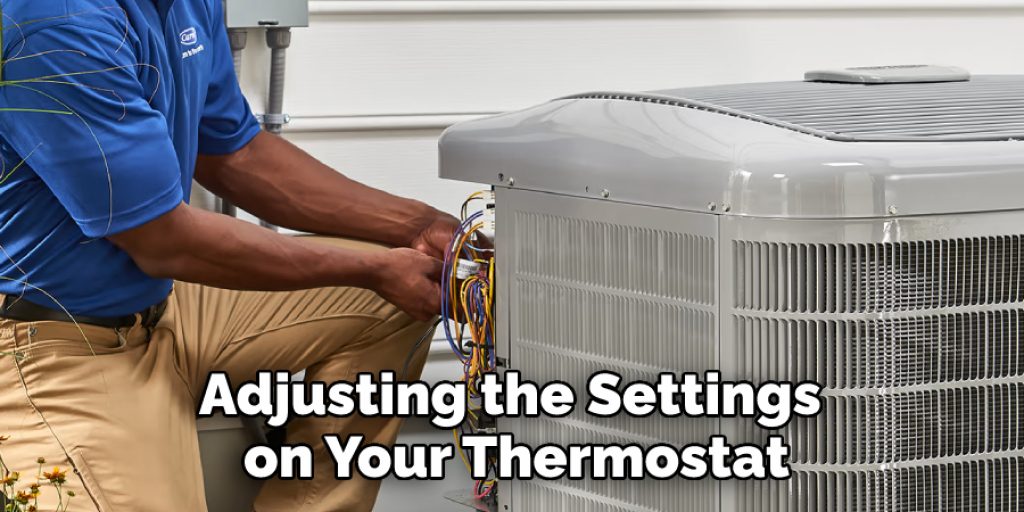
3. Insulate Pipes
Insulating pipes and ducts can help keep your system running optimally in cold weather. If you don’t already have insulation, adding it to exposed areas of your system can make a big difference.
4. Check for Loose Connections
It’s also important to check for any loose or disconnected wires or connections that may be causing problems. If any are found, make sure to tighten or reconnect them as needed. Tighten any loose screws or bolts to ensure a secure and reliable connection.
5. Clean Coils
Dust, dirt, and debris can also clog the coils in your heat pump system, which can cause freezing issues. Take the time to clean them with a vacuum and all-purpose cleaner or disinfectant spray to help improve efficiency.
6. Check the Compressor
The compressor is an essential part of the heat pump system and if it’s not functioning correctly, it can cause freezing problems. Make sure you check the compressor for any signs of damage or wear and tear, and replace any parts that are worn or damaged.
7. Inspect Ducts
It’s also important to check for any blockages, leaks, or other problems with your ductwork. Make sure there are no obstructions in the airflow and that all connections are properly sealed. Seal any gaps or leaks with insulation or mastic as needed. Sufficient insulation is also needed to help keep warm air circulating in your home.
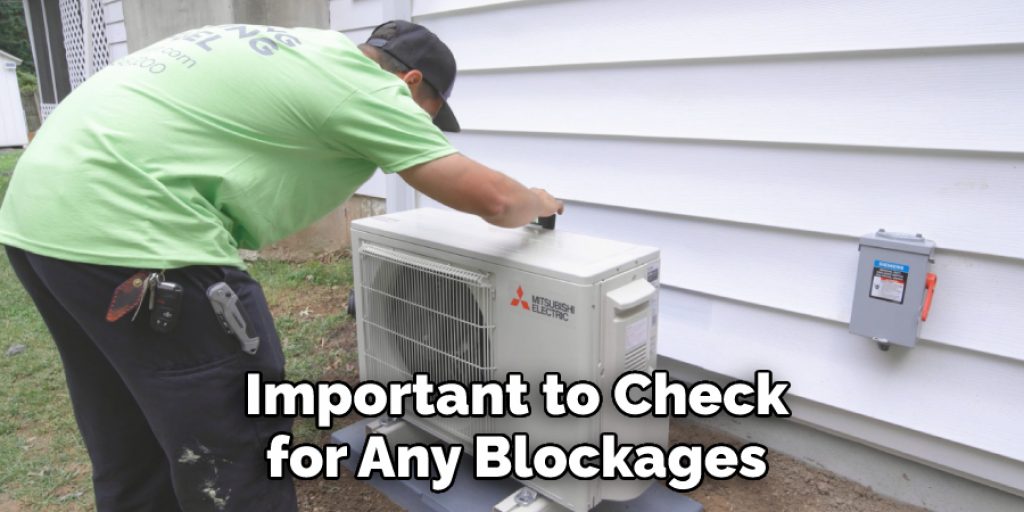
8. Check Refrigerant Levels
Low refrigerant levels can also cause freezing problems with heat pumps. Make sure the system is properly charged and that all lines are free of any leaks or blockages. It’s best to call a professional if you’re not sure how to properly charge the system.
9. Inspect and Clean the Blower Fan
The fan is responsible for pushing air through the system, so any blockage or clogs can lead to freezing problems. Be sure to clean and inspect it for any signs of damage or debris. If needed, replace any worn or broken parts with new ones.
10. Call a Professional
Finally, if all of the above tips fail to solve your freezing problems, it’s best to call a professional for help. They’ll be able to diagnose and fix any underlying issues that may be causing the problem.
By following these tips, you should be able to get your heat pump system up and running again in no time. Doing regular maintenance and taking care of any potential problems quickly can help ensure that your system runs at optimal efficiency all year round.
8 Maintenance Tips
1. Clean the Condenser Coils
The heat pump relies on its condenser coils to stay cool. If these coils become dirty or clogged, it can cause the entire system to freeze up. To prevent this from happening, make sure to clean the condenser coils regularly with a brush and hose attachment.
2. Check the Refrigerant Level
A heat pump needs to have the right amount of refrigerant in order to function properly. If there is not enough, it can cause the system to freeze up. To prevent this problem, check the refrigerant level regularly and add more if necessary. It’s important to wear gloves and safety glasses when handling refrigerant.
3. Check the Air Filter
A clogged air filter can cause the heat pump to freeze up because it restricts airflow to the unit. To ensure proper airflow, make sure to check and replace your air filter regularly. It’s a good idea to check it once a month.
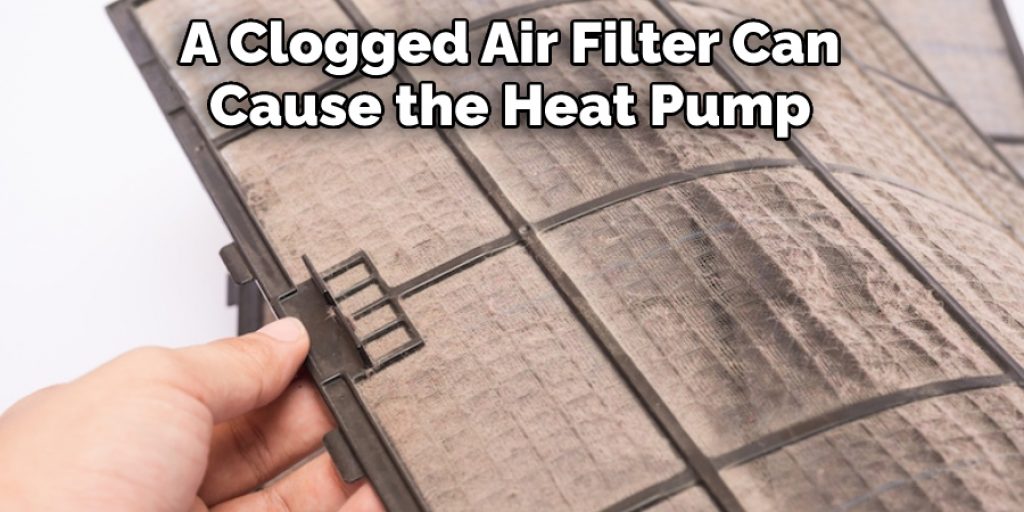
4. Clean the Air Ventilation System
The air ventilation system can become clogged with dust, dirt, and debris, which can cause the heat pump to freeze up. To prevent this problem, make sure to clean the air vents regularly with a vacuum or brush attachment.
5. Check the Thermostat Settings
The wrong thermostat setting can cause the heat pump to freeze up. To prevent this from happening, make sure to check and adjust your thermostat settings regularly. Also, make sure your thermostat is set to the correct temperature for optimal performance.
6. Clear Away Debris
Debris, such as leaves, sticks, and rocks, can accumulate around the heat pump. This debris can block airflow to the unit, which can cause it to freeze up. To prevent this problem, make sure to clear away any debris that accumulates around the heat pump on a regular basis.
7. Inspect the System Regularly
Inspecting the heat pump on a regular basis can help identify any potential problems that could be causing it to freeze up. Make sure to check all hoses, wires, and other parts of the system for signs of wear or damage.
8. Have Professional Service
If you’re having trouble fixing your heat pump freezing up yourself, it’s best to have a professional service technician come and take a look. They will be able to diagnose the problem and make any necessary repairs or adjustments.
How Much Will It Cost?
The cost of having a professional service technician come and inspect your heat pump will vary depending on the problem, but it’s usually around $100 to $200. This is a small price to pay for peace of mind that your system is functioning properly.
By following these simple maintenance tips, you can help ensure that your heat pump stays running smoothly and doesn’t freeze up. If you have any questions or need help with how to fix heat pump freezing up, contact a local HVAC technician for assistance.
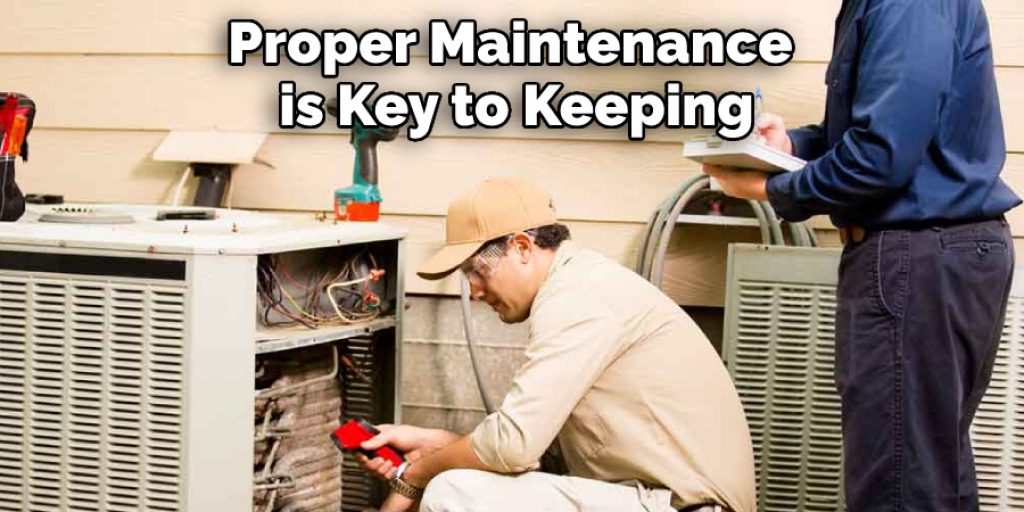
Remember, proper maintenance is key to keeping your heat pump functioning correctly and avoiding freezing issues. With regular care, you can ensure that your heat pump continues to run efficiently and effectively for years to come.
Conclusion
In conclusion, fixing the heat pump freezing up can be tricky as there are a variety of solutions that could potentially solve your problem. However, it’s important to do your research and take the necessary precautions before attempting any kind of repair.
If you discover that the solution is something beyond your capabilities, then don’t hesitate to call in a professional for help. It’s better to rely on an expert than risk further damage from trying to repair it without the appropriate skillset.
Additionally, remember to inspect and clean all internal components on a regular basis to help avoid repeating the same issue again. Finally, if you take care of even simple problems like frozen coils or faulty motors quickly, this will increase the lifespan of your heat pump, so you don’t have to worry about costly repairs down the line.
Fixing heat pumps doesn’t have to be a daunting task if you understand what to look for, know how to fix heat pump freezing up, and know how best to approach each unique challenge!

